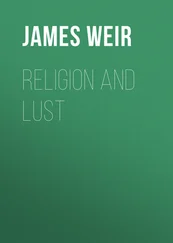James Walsh - Religion And Health
Здесь есть возможность читать онлайн «James Walsh - Religion And Health» — ознакомительный отрывок электронной книги совершенно бесплатно, а после прочтения отрывка купить полную версию. В некоторых случаях можно слушать аудио, скачать через торрент в формате fb2 и присутствует краткое содержание. Жанр: foreign_prose, foreign_religion, Здоровье, foreign_antique, на английском языке. Описание произведения, (предисловие) а так же отзывы посетителей доступны на портале библиотеки ЛибКат.
- Название:Religion And Health
- Автор:
- Жанр:
- Год:неизвестен
- ISBN:нет данных
- Рейтинг книги:4 / 5. Голосов: 1
-
Избранное:Добавить в избранное
- Отзывы:
-
Ваша оценка:
- 80
- 1
- 2
- 3
- 4
- 5
Religion And Health: краткое содержание, описание и аннотация
Предлагаем к чтению аннотацию, описание, краткое содержание или предисловие (зависит от того, что написал сам автор книги «Religion And Health»). Если вы не нашли необходимую информацию о книге — напишите в комментариях, мы постараемся отыскать её.
Religion And Health — читать онлайн ознакомительный отрывок
Ниже представлен текст книги, разбитый по страницам. Система сохранения места последней прочитанной страницы, позволяет с удобством читать онлайн бесплатно книгу «Religion And Health», без необходимости каждый раз заново искать на чём Вы остановились. Поставьте закладку, и сможете в любой момент перейти на страницу, на которой закончили чтение.
Интервал:
Закладка:
There is only one fair and practical way to reply to this question "Can We Still Believe?" especially for those who think that modern science has obscured the answer, and that is to turn to the lives of the men who made our modern science and see how they answered it in their definite relations to religion. The surprise is to find that while so many people, and not a few of them professors in colleges and even universities, are of the very often expressed opinion that science makes men irreligious or at least unreligious, that is not true at all of our greatest scientists. Most of the men who have done the great work of modern science have been deeply religious, and a great many of them have practiced their religion very faithfully. It is true that not a few of the lesser lights in science have been carried away by the impression that science was just about to explain everything, and there was no longer any need of a creator or creation or of Providence, but that is only because of their own limitations. Francis Bacon, himself a distinguished thinker in science, declared some three hundred years ago that his own feeling was that a little philosophy takes men away from God, but a sufficiency of philosophy brings them back. His opinion has often been reached by our deepest thinkers in the modern time, and it is just as true for natural philosophy as it was for the metaphysical philosophy of the older time, for Bacon's aphorism had been more than once anticipated in the early days of Christianity, notably by St. Augustine, and it would not be hard to find quotations from Greek thinkers along the same line. The Scriptures said very emphatically, "Only the fool who thinketh not in his heart says there is no God."
While young scientists then are so prone to feel that science and religion are in opposition, and a certain number of scientific workers never seem to outgrow their youthfulness in this regard, it must not be forgotten that the greatest scientists of the nineteenth and twentieth centuries have practically all been firm believers in religion. Lord Kelvin, at the beginning of the twentieth century, at the moment when he was looked up to by all the world as the greatest of living physical scientists, did not hesitate to say that "science demonstrates the existence of a Creator." As president of the British Association for the Advancement of Science he declared: "But strong, overpowering proofs of intelligent and benevolent design lie all around us; and if ever perplexities, whether metaphysical or scientific occur, they turn us away with irresistible force, showing to us, through nature, the influence of free will, and teaching us that all living beings depend on one ever-acting Creator and Ruler."
Once when particularly disgusted with the materialistic views of those who, while denying the existence of the Creator, attributed the wonders of nature, animate and inanimate, to the potency of a fortuitous concourse of atoms, Lord Kelvin wrote to Liebig, the great chemist, asking him if a leaf or a flower could be formed or even made to grow by chemical forces, and received the emphatic reply, "I would more readily believe that a book on chemistry or on botany could grow out of dead matter by chemical processes."
Expressions similar to those of Lord Kelvin and Liebig are commonplaces in the history of science. Sir Humphry Davy declared, "The true chemist sees God in all the manifold forms of the external world." Linnaeus, to whom the modern world confesses that it owes so much in the organization of botanical science, once exclaimed in what has well been called a spirit of rapture:
"I have traced God's footprints in the works of His creation; and in all of them, even in the least, and in those that border on nothingness, what power, what wisdom, what ineffable perfection!"
It would be very easy to make a long list of extremely great scientists who were firm believers. Clerk Maxwell once said to a friend, "I have read up many queer religions; there is nothing like the old one after all; and I have looked into most philosophical systems, and I have seen that none will work without a God." Pasteur declared in his address before the French Academy, when admitted as a member, "Blessed is the man who has an ideal of the virtues of the Gospel and obeys it." He had once said, impatient at the pretensions of pseudo-scientists: "Posterity will one day laugh at the sublime foolishness of the modern materialistic philosophy. The more I study nature, the more I stand amazed at the work of the Creator. I pray while I am engaged at my work in the laboratory."
Kepler, the great astronomer to whom we owe so many significant basic discoveries, once said:
"The day is near at hand when one shall know the truth in the book of nature as in the Holy Scriptures, and when one shall rejoice in the harmony of both revelations."
Sir Isaac Newton, whose modesty was equaled only by the magnitude of his discoveries, was so impressed with his own littleness in the contemplation of the wonderful works of God that he declared, a short time before his death, "I seem to have been only like a boy playing on the seashore, and diverting myself in now and then finding a smoother pebble or a prettier shell than ordinary, while the great ocean of truth lay all undiscovered before me."
Dumas, the great French chemist, for many years the secretary of the French Academy of Sciences, once suggested the great difference there is in the matter of religious belief between the original worker in science and those who know their science only at second-hand. Those who have acquired their knowledge of science easily have no idea of the difficulties which the original investigator had to encounter and how deep are the mysteries which he knows lie all around him. The second-hand scientist becomes conceited over his knowledge, but the original investigator becomes humble. Dumas said:
"People who only exploit the discoveries of others, and who never make any themselves, greatly exaggerate their importance, because they have never run against the mysteries of science which have checked real savants. Hence their irreligion and their infatuation. It is quite different with people who have made discoveries themselves. They know by experience how limited their field is, and they find themselves at every step arrested by the incomprehensible. Hence their religion and their modesty. Faith and respect for mysteries is easy for them. The more progress they make in science, the more they are confounded by the infinite."
Professor P. G. Tait, professor of natural philosophy at Edinburgh University for the last forty years of the nineteenth century, and who was the co-author with Lord Kelvin of Thomson's and Tait's "Natural Philosophy" (the well-known T+T) summed up the question of the supposed conflict of religion and science rather strikingly and in a way that makes it easy to comprehend many modern misunderstandings. He said:
"The assumed incompatibility of Religion and Science has been so often confidently asserted in recent times that it has come to be taken for granted by writers of leading articles, etc., and it is, of course, perpetually thrust by them broadcast before their too trusting readers.
"But the whole thing is a mistake, and a mistake so grave that no true scientific man (unless indeed he be literally a specialist—such as a pure mathematician, or a mycologist or entomologist) runs, in Britain at least, the smallest risk of making it.
"When we ask of any competent authority who are the 'advanced', the best, and the ablest scientific thinkers of the immediate past (in Britain), we cannot but receive for answer such names as Brewster, Faraday, Forbes, Graham, Rowan Hamilton, Herschel, and Talbot. This must be the case unless we use the word 'science' in a perverted sense. Which of these great men gave up the idea that Nature evidences a Designing Mind?"
Читать дальшеИнтервал:
Закладка:
Похожие книги на «Religion And Health»
Представляем Вашему вниманию похожие книги на «Religion And Health» списком для выбора. Мы отобрали схожую по названию и смыслу литературу в надежде предоставить читателям больше вариантов отыскать новые, интересные, ещё непрочитанные произведения.
Обсуждение, отзывы о книге «Religion And Health» и просто собственные мнения читателей. Оставьте ваши комментарии, напишите, что Вы думаете о произведении, его смысле или главных героях. Укажите что конкретно понравилось, а что нет, и почему Вы так считаете.












